

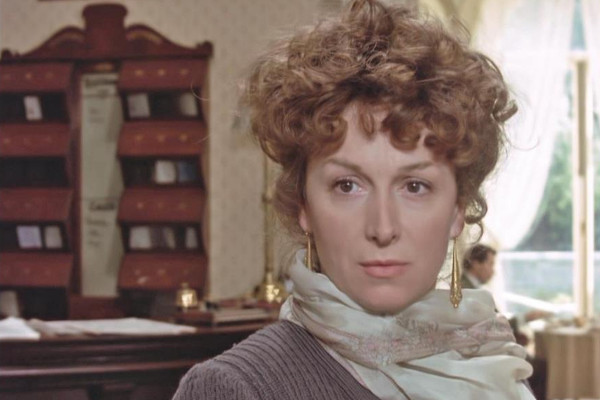
Sadly the budgetary constraints forced on Michael Cox by Granada's executives meant that Arthur Conan Doyle's tale of international intrigue had to be relocated from Switzerland to the Lake District, but this is still one of the stronger episodes of The Casebook, largely thanks to the impeccable location filming and some great performances from some of the finest television actors of their generation such as Cheryl Campbell and Michael Jayston.
Here Watson is spared the indignities which ACD heaped upon him in the original story, though Holmes has to admit at the end that his failure to prevent Lady Carfax's premature burial will have profound consequences for her. Despite that, Brett and Hardwicke make a dynamic duo in this episode, not least when they confront Carfax's kidnapper and Brett offers to present his warrant for the villain's arrest; whereupon Watson draws his trusty service revolver. Perhaps ultimately disappointing, but a great journey nevertheless.
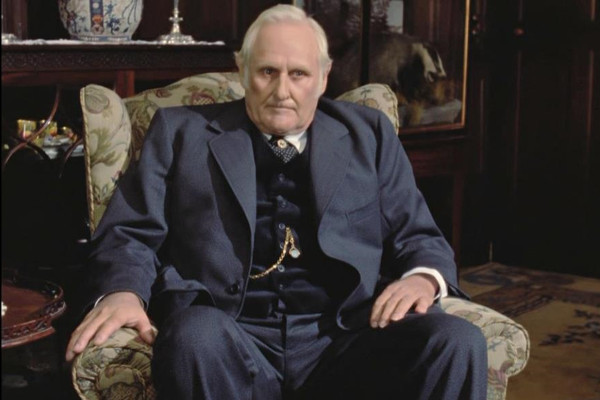
Michael Cox had fought a good battle to bring The Casebook to screen with something approaching the same quality of the preceding four series of Granada's Sherlock Holmes, but there is no getting away from the fact that compromises had to be made in each story in the series to avoid the fate that befell the truncated final season of The Return.
Either the location filming had to be reduced (as in 'The Hound of the Baskervilles') or changed (as in 'The Disappearance of Lady Frances Carfax') or an inexperienced minor cast had to be employed (as in 'Silver Blaze') or, as in this case, a cheaper director had to be found.
June Howson, a veteran of Granada's Crown Court, doesn't commit as many blunders as Peter Hammond would inflict on the series in its last two years, but her fondness for dramatic close-ups does rather reduce the fine performances of Brett, Peter Vaughan and the young James Purefoy to the status of melodrama. One can see why she was not asked to work on the series again.
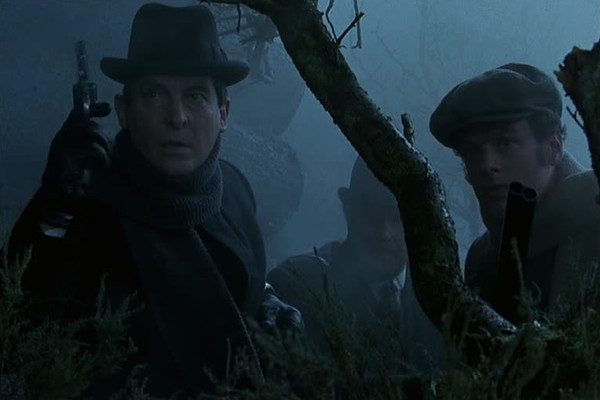
Strange that perhaps the most famous of all of the Sherlock Holmes stories barely features Holmes at all for the first half, which perhaps accounts for the low placing on this list. Then there is the clear evidence that the budget has been considerably reduced since the first two-hour 'special', 'The Sign of Four', made only the year previously.
Cox's first choice for the director, John Madden, who had done such a sterling job with 'The Priory Schol' and who went on to be nominated for an Oscar for Shakespeare in Love, wouldn't work for the fee offered and so Brian Mills, after his triumph on 'Silver Blaze', was set the task of filming the famous tale.
Sadly, with a reduced budget, Mills cannot match his previous work - there are rather too many unconvincing studio sets standing in for the moors, too much reused footage from previous episodes, a very slow middle hour and a very bathetic Hound, who is clearly a Great Dane who just wants to nuzzle Baskerville and whose treatment on set worried several of the cast.
But Hardwicke finally gets the chance to shine as he investigates alone and Ronald Pickup is great as Barrymore, with Brett stealing the show as he holds his nerve when the beast finally arrives. It's solid, but nothing like as unforgettable as 'The Sign of Four.'
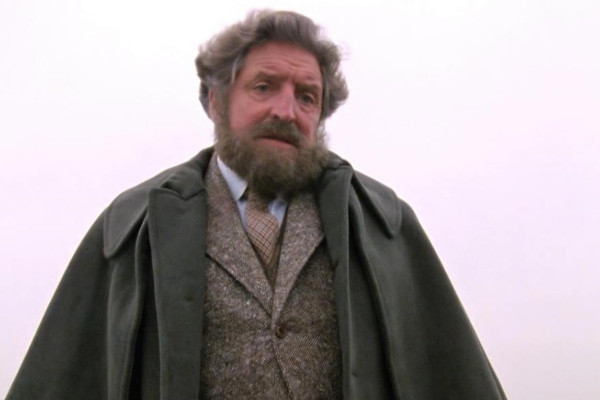
This is another fan favourite, but I fear it is a little too self-indulgent. Brett had clearly been very ill since the filming of 'The Sign of Four' and had cut his hair very short in a manic episode. This is turned into a very soapy plotline where he buries his morphine hypodermic in the sand and nearly dies as a result of his exposure to the poison gas.
I can excuse the indulgence of Holmes' use of Watson's first name ('John!') when he is rescued by the devoted doctor, but the hallucinations are unnecessary and very '80s in their style. Denis Quilley plays an ambiguous protagonist with his usual ebullience and the location filming in Cornwall is lovely but this and 'Silver Blaze''s similar extravagance exhausted the budget.
Michael Cox referred to the episode as 'The Cornish Horror' and it meant that cost-cutting of various forms was imposed. To facilitate the making of 'The Hound of the Baskervilles', the regular series was cut to only four episodes and producer June Wyndham-Davies was subsequently directed to make her budgets last by producing a series of two hour 'specials' instead – which proved to be the series' turning point as an unsuitable format, an ill leading man, a disgruntled executive producer and the paucity of the remaining ACD stories did not make for a successful strategy.
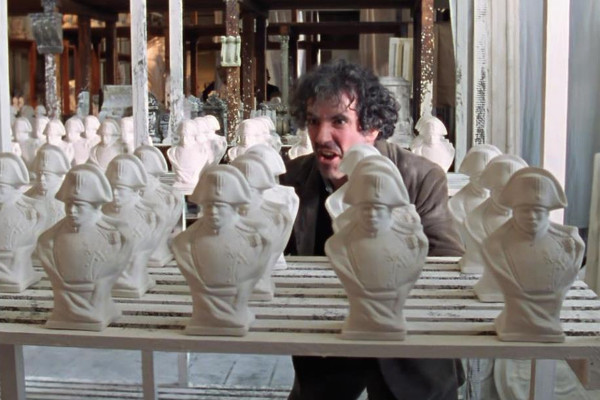
In the second series of The Adventures, the screenplay writer and the director avoided the temptation to portray the non-English characters of 'The Greek Interpreter' as particularly exotic. Mr Melas is remarkably phlegmatic about his experiences and Sophie Kratides is shown to be cold-blooded about her lover's murder of her brother – the very opposite of cliches about fiery Mediterranean types.
But here, a story set among the Italian expat community of London is full of arm waving, shouting, stiletto-fights and not a lot of sense. David Carson can't quite match the heights of 'The Musgrave Ritual'; Lestrade suddenly appears to have become Watson's BFF and the ending is a bit rushed, but Marina Sirtis, in her last British TV role before emigrating to America, plays the appropriately named Lucrezia Venucci with real class and Brett's legerdemain with the final bust of the emperor makes all the hot-blooded Latin stereotypes worth enduring.
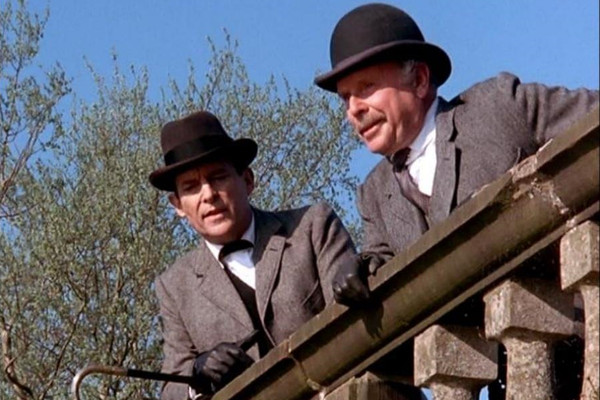
The only one of the '90s episodes to merit a place in the top twenty. After the appalling depiction of the character of Tonga in 'The Sign of Four', screenwriter Jeremy Paul manages to make some amends here by making Holmes' client, brilliantly portrayed by Daniel Massey, an abusive bully who drove his Brazilian wife to suicide by his neglect and dalliance with his children's governess.
If we overlook the darkening of the skin of the very English Cecilia Gregory (who played Ruth Anderson in Terry Nation's Survivors), this is a tale in which the culprit (as the wife has sought to frame her husband's mistress for her death) ends up earning Holmes' and our sympathies.
Hardwicke and Brett are on top form here and Michael Simpson, who bizarrely cut his teeth on slasher horror films such as Sleepaway Camp III: Teenage Wasteland, does a terrific job in his only contribution to the series by holding us in suspense until Brett reveals the significance of the chip in the bridge's balustrade and unfolds the wife's unhappy tale.
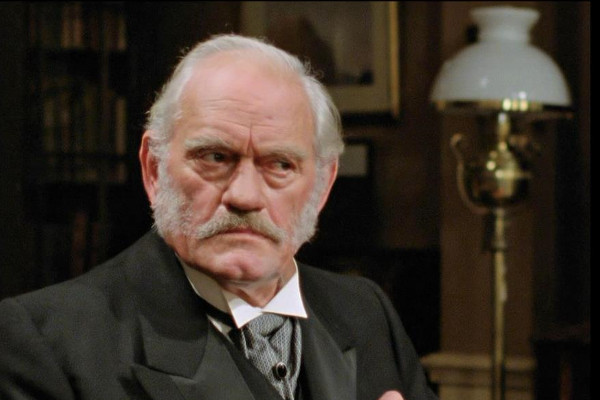
Another fairly slight story that depends this time on the audience not questioning the inability of the upper classes to put their petty domestic concerns before the needs of the nation. Lady Hope, played with great nobility by Patricia Hodge, is blackmailed into stealing a state secret from her husband's ministerial box. Despite the fact that the indiscretion occurred long before she met her husband, she decides to put her marriage before the country and chooses, in an act typical of the Victorian aristocracy, not tell anyone and hope that the whole thing will clear itself up.
Luckily Brett's Holmes manages two brilliant feats – firstly identifying that the missing document had been in the room where an apparently unconnected murder took place and then returning the document to the red box under the nose of the minister. Harry Andrews, doing a first-class impersonation of William Gladstone as Lord Bellinger, is not fooled, however, and makes his suspicions clear to Holmes. But Brett delivers the final line 'Ah, Prime Minister, we too have our diplomatic secrets' with relish and then jumps for joy as he realises that he's got away with it.
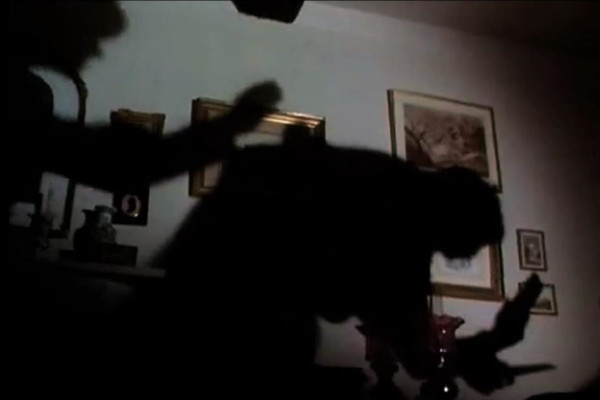
Sorry, but the central mystery in his episode is an even better argument against aristocratic patronage than 'The Second Stain' and I wonder if Arthur Conan Doyle (who was famously excluded from a large number of establishment institutions over the years) was not making a point when he described how the Treaty in question was lost.
The hapless and neurotic Percy Phelps, who only got a senior position at the Foreign Office thanks to his uncle being the Foreign Secretary, is given the simple task of copying a secret and highly sensitive treaty by his uncle. And what does the twerp do when his request for a reviving cup of coffee isn't answered? He only wanders off from his office, leaving it unlocked and unmanned without having first secreted the treaty!! Then he has a nervous breakdown (which is fat lot of help) and has to be nursed day and night by his fiancée. And to make it even clearer that we don't need the upper classes to run the country, it turns out that his fiancée's brother nicked it.
Thank goodness for a professional like Holmes, even one who gets distracted by the loveliness of a rose, in one of the series' most characteristic and one of Brett's most masterful scenes. Shame about the final confrontation, which Alan Grint decides to film as a shadow-play and which comes across as a bit too arch. And will the brother be invited to the wedding? Well, he'll be well-connected then, so no doubt it will all be hushed up and he'll get a job oppressing the indigenous in New South Wales or something. Really, this country.